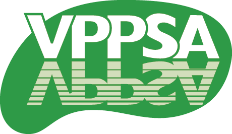Household Hazardous Waste Information for Businesses
The United States Environmental Protection Agency (EPA) defines household hazardous waste as: The leftover content of consumer products used in and around the home that contain hazardous components, including certain paints, cleaners, stains and varnishes, car batteries, motor oil, and pesticides.
Certain types of household hazardous waste have the potential to cause physical injury to sanitation workers, contaminate septic tanks or wastewater treatment systems if poured down drains or toilets, and present hazards to children and pets if left around the house. While households do not have to separate household hazardous waste from trash under federal law, some states and localities have special disposal requirements for this waste.
This is why your community has directed the Virginia Peninsulas Public Service Authority (VPPSA) to provide household hazardous waste collection events. The costs for these collection events are paid for by your community through its annual budget. The events are limited to residential customers. The program will allow for Conditionally Exempt Small Quantity Generators, under very specific conditions.
Hazardous Waste: Determining Your Generator Status
What is Hazardous Waste Generator Status?
If your operations cause hazardous waste to be generated, you must determine your generator status. The hazardous waste generator status of a facility is determined based on the amount of hazardous waste generated in any given month of the calendar year. Hazardous waste generators are divided into three categories: conditionally exempt small quantity generators, small quantity generators, and large quantity generators.
- Conditionally Exempt Small Quantity Generators (CESQG): If you generate 220 pounds (100 kilograms) or less of hazardous waste per month, you are considered a CESQG.
- Small Quantity Generator (SQG): If you generate more than 220 pounds (100 kilograms) but less than 2200 pounds (1000 kilograms) of hazardous waste per month, you are considered an SQG for that year.
- Large Quantity Generator (LQG): If you generate 2200 pounds (1000 kilograms) or more of hazardous waste per month of the calendar year, you are considered an LQG for that year.
VPPSA has a limited term contract with Clean Harbors Environmental Services and through this agreement is able to handle CESQG at collection events. They need to contact VPPSA prior to the event and provide the name of the company and a complete inventory of the materials and quantities for disposal. VPPSA will contact its vendor with the provided information and arrangements will be made. It is the responsibility of the CESQG to pay for the disposal of the materials and a check will be required before anything is unloaded.
There are instances where direct contact with the vendor yields a more favorable outcome. The vendor may be in the area providing services to another customer in the area and can provide collection service direct at the business address.
Although our contract is very competitive, it is geared towards those materials found most commonly in the home. For this reason we have provided a list of other environmental services companies below.
Clean Harbors Environmental Services
(773) 646-6202
Everlights
(773) 734-9873
Heritage Environmental Services LLC
(630) 739-1151
Onyx Environmental Services
(618) 271-2804
R3 Environmental, Inc.
(847) 488-1492
Safety Kleen
(847) 468-6600
SET Environmental Inc.
(847) 537-9221
Waste Management
www.wm.com
(800) 796-9696
Administrative Office
475 McLaws Circle, Suite 3B
Williamsburg, Virginia 23185
757-259-9850
Fax 757-259-9855
Field Office and Maintenance Facility
480 Clancie Road
Shacklefords, Virginia 23156
804-758-1900
Fax 804-758-4263
Compost Facility
145 Goodwin Neck Road
Yorktown, Virginia 23692
757-898-5012
Fax 757-898-0641
